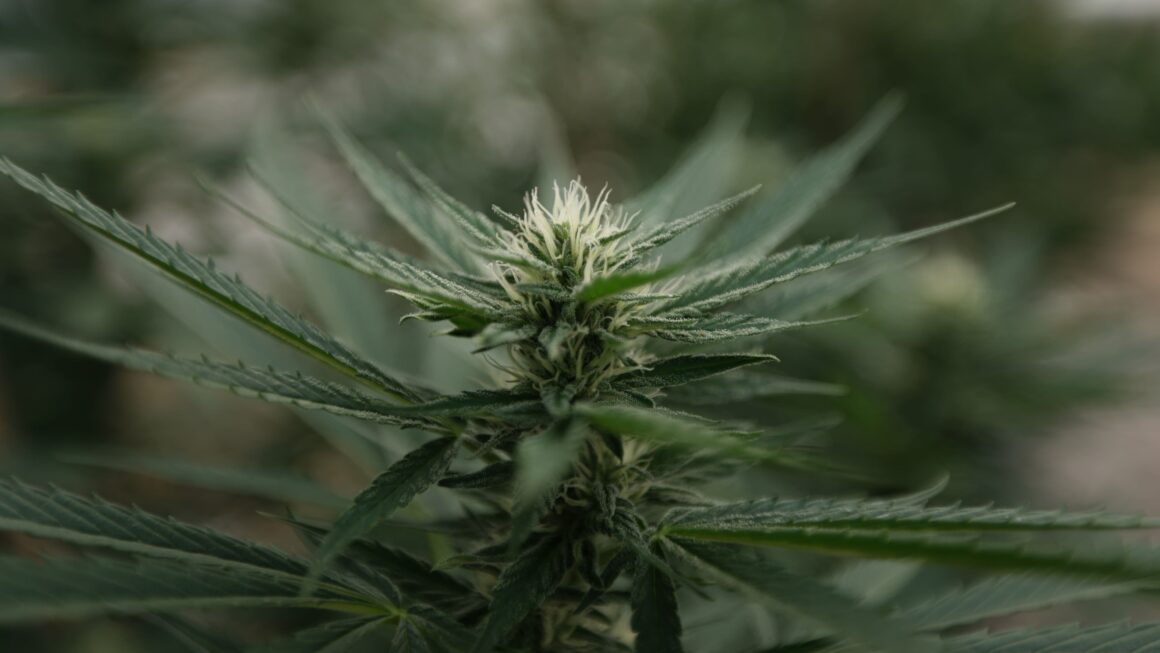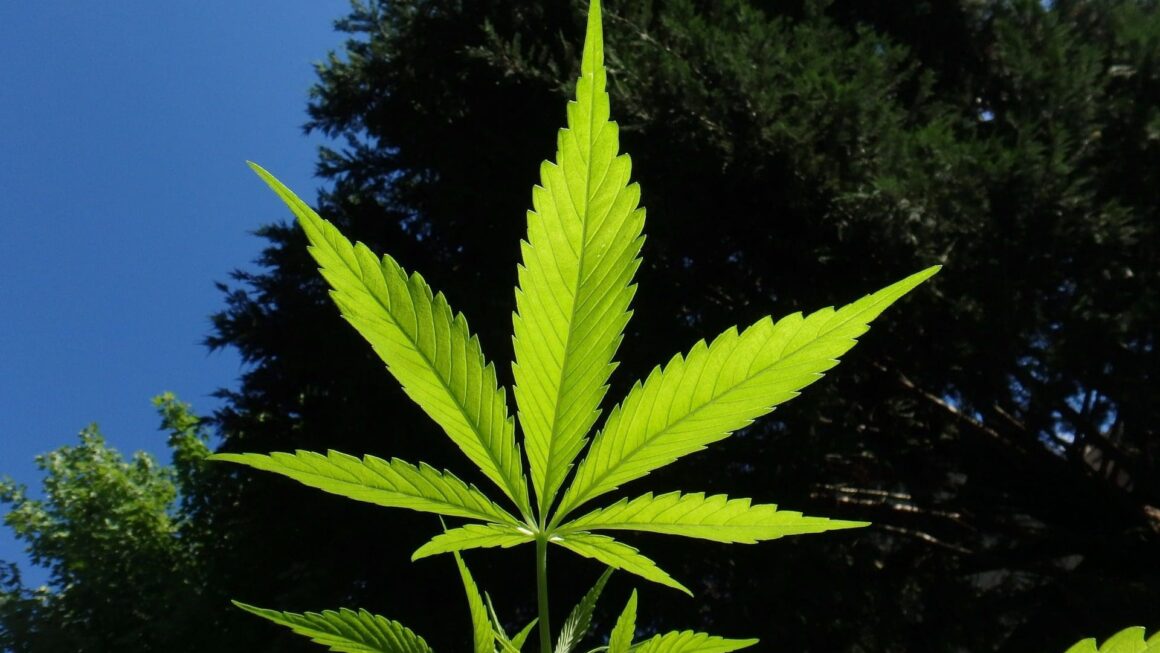Ohio House lawmakers on Tuesday approved an amended Senate-passed bill that would make significant changes to the state’s voter-approved marijuana legalization law while incorporating a series of regulations for hemp that are meant to align the two sectors of the cannabis industry.
Members of the House Judiciary Committee agreed to changes to the measure from Sen. Stephen Huffman (R) before advancing it to other panels and an expected floor vote on Wednesday. But while certain controversial provisions of the bill as passed by the Senate were scaled back, it would still make major changes to the marijuana law voters approved in 2023.
The measure will now go to the Rules Committee before being re-referred to the Finance Committee, after which point it’s expected to receive floor action.
“We’ve had years of testimony. We’ve heard from marijuana advocates, hemp advocates, public health advocates and everyone in between,” Rep. Brian Stewart (R) said. “We are generally going to take the feedback from the hemp industry, which said, ‘Treat us like marijuana,” he said. “They will have the same potency limitations, the same advertising restrictions, the same restrictions on quantities, serving size and how they operate.”
Rep. Jamie Callender (R), who has led the charge on marijuana policy in the House, said ahead of the vote that the revised bill would be “very thoughtful and targeted.” But at the hearing, he added that the legislation is “not perfect” or what he would have drafted.
“It’s a bill that can get passed that will help us implement some of the elements of Issue 2 that have been held up and give clarity to the rulemakers on some of the points that are outstanding,” he said, referring to the voter-approved legalization measure. “It also clarifies and cements a few of the gains that were gained over the years: Sharing, home grow, no new prosecutions [and] the taxes going to the local governments.”
“We’ve got more work to do. We are not done.”
Under the amended legislation, stores and breweries would be permitted to sell hemp-derived THC beverages, with new advertising restrictions meant to prevent appealing to youth. Products for on-site consumption would be limited to 5 mg of THC, but adults could buy take-home drinks containing up to 10 mg. More potent drinks could also be manufactured in Ohio, but only for sales to people outside the state.
There would be a new $1.20 tax per gallon on hemp beverages created by the bill, and Stewart said it will “create a pathway for legal, regulated, licensed hemp dispensaries.”
“Nobody has ever voted to allow functionally equivalent products to marijuana—hemp products—to be sold in 6,000 plus gas stations and grocery stores around the state,” he said. “And so with this bill, we would say that you can buy intoxicating hemp products in licensed hemp dispensaries. We are not going to have intoxicating hemp available to any establishment that admits persons who are under the age of 21.”
Advocates remain concerned about other marijuana-related provisions of the Senate bill that were left intact. That includes the elimination of language in the current voter-approved law providing anti-discrimination protections for people who lawfully use cannabis and the recriminalization of possessing marijuana from any source that isn’t a state-licensed dispensary.
“It is profoundly disappointing to see the House Judiciary Committee advance legislation to roll back cannabis freedoms and protections that Ohio voters overwhelmingly approved,” Karen O’Keefe, director of states policies at the Marijuana Policy Project (MPP), told Marijuana Moment. “The committee substitute would open the door to harassment and interrogation of cannabis consumers by criminalizing any cannabis that wasn’t home grown or obtained from an Ohio retailer. It would also remove protections that prevent responsible cannabis consumers from losing their children, professions, and even their lives for cannabis use.”
The legislation also bans smoking cannabis at outdoor public locations such as bar patios, and it allows landlords to prohibit vaping marijuana at rented homes.
In short, the proposal “continues to gut the voter-enacted law,” O’Keefe said in a letter to Judiciary Committee members ahead of Tuesday’s hearing.
“Please reject this erosion of freedoms enacted by 57 percent of voters,” she said, adding that the legislation as amended “will lead to interrogations over the source of cannabis and arrests over conduct voters legalized.”
“The bill also allows families to be ripped apart, professions lost, and lives destroyed for responsible cannabis use—by repealing voter-enacted protections to prevent such suffering,” she said. “Please remove all language amending Issue 2, or at least slow the process down. Voters and stakeholders deserve a chance to review language before their law is gutted.”
Unlike the Senate-passed version of the legislation, the House substitute will send tax revenue from cannabis sales to local governments.
Rep. Desiree Tims (D) said at the hearing that she still has “concerns about the criminal justice implications” of the substitute bill, inquiring of the sponsor about expungement provisions.
“My number one fear is that we are in the process of legalizing something where a select few will become very, very wealthy, while people continue to suffer from past activities–whether recreational or otherwise—utilizing the very same products that we are allowing people to make a profit off,” she said.
Stewart said the bill does contain a pathway for people with prior cannabis possession convictions to have their records expunged if they proactively petition the courts, and that process would be “expedited,” albeit not automated as is in the case in certain other legal marijuana states.
Members of the committee separately approved an amendment from Rep. Josh Williams (R) to revise the expungement process for eligible past cases by making it incumbent on the state to proactively defend any decision to deny a person’s request to seal their record.
Another lawmaker raised a question about disparate penalties for the sale of hemp or marijuana to minors compared to alcohol, and Stewart replied that the Republican caucus is “comfortable with the penalty being higher for marijuana and intoxicating hemp.”
“I think that’ll probably be a source of continued debate as Ohioans kind of get used to a fairly substantial new landscape here,” he said. “Rightly or wrongly, I still think there is a view that we’re a little more concerned about selling kids weed than Miller Lite.”
Tuesday’s hearing comes weeks after DeWine issued emergency rules prohibiting the sale of intoxicating hemp products for 90 days, with instructions to the legislature to consider permanent regulations. Last week, however, a county judge enjoined the state from enforcing that policy in response to a legal challenge.
“Frankly, the legislature had not taken action,” Gov. Mike DeWine (R) said in an interview published this week. “I’m still hopeful that the legislature will come in and actually take action.”
House Speaker Matt Huffman (R) commented recently on the relative lack of progress in advancing marijuana and hemp legislation since voters approved legalization at the ballot in 2023, noting substantive divides within the Republican caucus.
There are “folks who believe that marijuana should be legalized and regulated,” others “who believe that the hemp products should be on equal standing with everything that happened in the initiated statute and then “folks, like me, who are prohibitionists, who don’t think it should be legalized at all and it should be rare,” he said.
“I would say the prohibitionists have largely lost this discussion.”
—
Marijuana Moment is tracking hundreds of cannabis, psychedelics and drug policy bills in state legislatures and Congress this year. Patreon supporters pledging at least $25/month get access to our interactive maps, charts and hearing calendar so they don’t miss any developments.![]()
Learn more about our marijuana bill tracker and become a supporter on Patreon to get access.
—
Meanwhile, last month, the Ohio Department of Cannabis Control (DCC) filed new proposed rules to build upon the state’s marijuana legalization law, laying out plans to update regulations on labeling and packaging requirements.
The proposal came weeks after Ohio medical and adult-use marijuana sales officially crossed $3 billion, data from the state Department of Commerce (DOC) shows.
The state sold about $703 million in recreational cannabis in the law’s first year of implementation, according to DCC data.
In March, a survey of 38 municipalities by the Ohio State University’s (OSU) Moritz College of Law found that local leaders were “unequivocally opposed” to earlier proposals that would have stripped the planned funding.
Meanwhile in Ohio, adults as of June are able to buy more than double the amount of marijuana than they were under previous limits, with state officials determining that the market can sustainably supply both medical cannabis patients and adult consumers.
The governor in March separately announced his desire to reallocate marijuana tax revenue to support police training, local jails and behavioral health services. He said funding police training was a top priority, even if that wasn’t included in what voters passed in 2023.
Ohio’s Senate president has also pushed back against criticism of the Senate bill, claiming the legislation does not disrespect the will of the electorate and would have little impact on products available in stores.
Photo courtesy of Mike Latimer.






